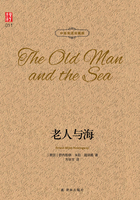You see now into what a fatal entanglement two high-minded young ladies were led, step by step, through yielding to the natural foible of their ***--the desire to hide everything painful from those they love, even at the expense of truth.
A nice mess they made of it with their amiable dishonesty.And pray take notice that after the first White Lie or two, circumstances overpowered them, and drove them on against their will.It was no small part of all their misery that they longed to get back to truth and could not.
We shall see presently how far they succeeded in that pious object, for the sake of which they first entered on concealments.But first a word is due about one of the victims of their amiable, self-sacrificing lubricity.Edouard Riviere fell in one night, from happiness and confidence, such as till that night be had never enjoyed, to deep and hopeless misery.
He lost that which, to every heart capable of really loving, is the greatest earthly blessing, the woman he adored.But worse than that, he lost those prime treasures of the masculine soul, belief in human goodness, and in female purity.To him no more could there be in nature a candid eye, a virtuous ready-mantling cheek: for frailty and treachery had put on these signs of virtue and nobility.
Henceforth, let him live a hundred years, whom could he trust or believe in?
Here was a creature whose virtues seemed to make frailty impossible:
treachery, doubly impossible: a creature whose very faults--for faults she had--had seemed as opposite to treachery as her very virtues were.Yet she was all frailty and falsehood.
He passed in that one night of anguish from youth to age.He went about his business like a leaden thing.His food turned tasteless.
His life seemed ended.Nothing appeared what it had been.The very landscape seemed cut in stone, and he a stone in the middle of it, and his heart a stone in him.At times, across that heavy heart came gushes of furious rage and bitter mortification; his heart was broken, and his faith was gone, for his vanity had been stabbed as fiercely as his love."Georges Dandin!" he would cry, "curse her!
curse her!" But love and misery overpowered these heats, and froze him to stone again.
The poor boy pined and pined.His clothes hung loose about him; his face was so drawn with suffering, you would not have known him.He hated company.The things he was expected to talk about!--he with his crushed heart.He could not.He would not.He shunned all the world; he went alone like a wounded deer.The good doctor, on his return from Paris, called on him to see if he was ill: since he had not come for days to the chateau.He saw the doctor coming and bade the servant say he was not in the village.
He drew down the blind, that he might never see the chateau again.
He drew it up again: he could not exist without seeing it."She will be miserable, too," he cried, gnashing his teeth."She will see whether she has chosen well." At other times, all his courage, and his hatred, and his wounded vanity, were drowned in his love and its despair, and then he bowed his head, and sobbed and cried as if his heart would burst.One morning he was so sobbing with his head on the table, when his landlady tapped at his door.He started up and turned his head away from the door.
"A young woman from Beaurepaire, monsieur.""From Beaurepaire?" his heart gave a furious leap."Show her in."He wiped his eyes and seated himself at a table, and, all in a flutter, pretended to be the state's.
It was not Jacintha, as he expected, but the other servant.She made a low reverence, cast a look of admiration on him, and gave him a letter.His eye darted on it: his hand trembled as he took it.
He turned away again to open it.He forced himself to say, in a tolerably calm voice, "I will send an answer."The letter was apparently from the baroness de Beaurepaire; a mere line inviting him to pay her a visit.It was written in a tremulous hand.Edouard examined the writing, and saw directly it was written by Rose.
Being now, naturally enough, full of suspicion, he set this down as an attempt to disguise her hand."So," said he, to himself, "this is the game.The old woman is to be drawn into it, too.She is to help to make Georges Dandin of me.I will go.I will baffle them all.I will expose this nest of depravity, all ceremony on the surface, and voluptuousness and treachery below.O God! who could believe that creature never loved me! They shall none of them see my weakness.Their benefactor shall be still their superior.They shall see me cold as ice, and bitter as gall."But to follow him farther just now, would be to run too far in advance of the main story.I must, therefore, return to Beaurepaire, and show, amongst other things, how this very letter came to be written.
When Josephine and Rose awoke from that startled slumber that followed the exhaustion of that troubled night, Rose was the more wretched of the two.She had not only dishonored herself, but stabbed the man she loved.
Josephine, on the other hand, was exhausted, but calm.The fearful escape she had had softened down by contrast her more distant terrors.
She began to shut her eyes again, and let herself drift.Above all, the doctor's promise comforted her: that she should go to Paris with him, and have her boy.
This deceitful calm of the heart lasted three days.
Carefully encouraged by Rose, it was destroyed by Jacintha.
Jacintha, conscious that she had betrayed her trust, was almost heart-broken.She was ashamed to appear before her young mistress, and, coward-like, wanted to avoid knowing even how much harm she had done.
She pretended toothache, bound up her face, and never stirred from the kitchen.But she was not to escape: the other servant came down with a message: "Madame Raynal wanted to see her directly."She came quaking, and found Josephine all alone.
Josephine rose to meet her, and casting a furtive glance round the room first, threw her arms round Jacintha's neck, and embraced her with many tears.















